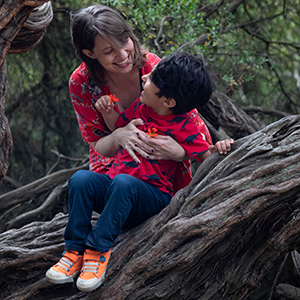
During prenatal preparations, Rebekah Drechsel asked about cord blood banking.
Instead of treating cord blood as medical waste, she recognized the donation as “a way to possibly save another person’s life. If I can take an easy step to help someone, why wouldn’t I? I didn’t see any downside to it,” said Drechsel, who is also a registered organ donor. “I’m a big believer in contributing to the greater good.”
So, when her son Ethan was born at Kaiser Permanente San Francisco Medical Center in 2017, she didn’t hesitate to donate. She found the process to be painless, and there was no impact on her or the baby.
Cord blood donated at Kaiser Permanente San Francisco, the city’s first public cord blood donation center, is shipped to the Cleveland Cord Blood Center which collects, processes, stores and distributes stem-cell rich umbilical cord blood for research or transplantation in patients with life-threatening disorders such as leukemia, lymphoma and immune system disorders. In addition to the potential of Ethan’s cord blood being a match for a transplant recipient, Drechsel understood that the donation could also be used in research to explore medical advances using umbilical cord blood. “Cures come from research, and scientific advances in research may not be made without such donations,” Drechsel said.
Drechsel, who is of European descent, and her son’s father being of Mexican heritage, recognized the importance of donors from mixed heritage. Ethan’s cord blood contributes to helping meet the increasing demand for mixed race donations, an area of particular focus of the Cleveland Cord Blood Center.
“At the end of the day, the extent to which you can broaden and diversify cord blood contributions, you’re helping to increase the possibility of a match and a successful treatment,” she added. “If it’s something you can do to save a life, that’s an amazing thing. Why not go for it?”


